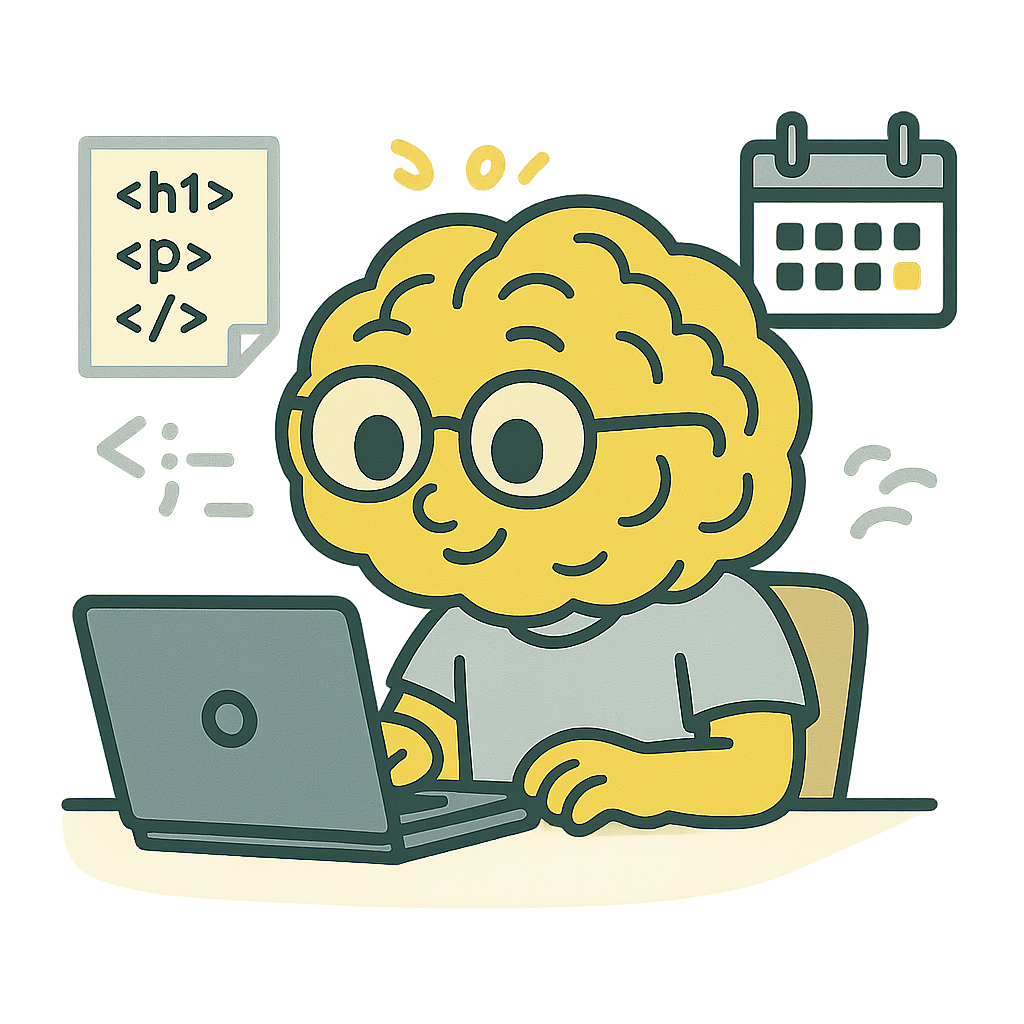T-Shaped? I’m More Like a Wiggly Octopus
3 min read

Ping:
You're not starting from scratch. You're starting from structure. 🧠
Intro
Most developer advice says:
"Pick one stack. Specialize. Go deep."
That works for some.
But for many neurodivergent developers, depth looks different.
We’re often wired to notice patterns.
To see how things connect.
To learn by comparing - not just by repeating.
That means cross-skilling isn’t a distraction.
It’s a form of mastery.
T-Shaped? I’m More Like a Wiggly Octopus
I used to hate JavaScript.
I mean - who on EARTH would write this crap of a language?
It felt messy. Too many ways to do the same thing.
Curly braces, weird scope rules, everything loosely typed and full of quirks.
But then… something clicked.
And once it did, I started seeing the power.
JavaScript wasn't just for the browser. It was everywhere (Like Nvidia GEFORCE Experience on windows is built with it).
I could write CLI tools, backend APIs, automations - all with a single language.
And from there, the pattern started to unfold. The more I learned, the faster I learned.
Python? Weird at first - the whitespace threw me. But once I got past the lack of curly braces, it all made sense.
Same logic. Different rhythm.
TypeScript? That one surprised me.
I used to trash talk it. "Why make JS worse?" I said.
Now? It’s my language of choice. My love language or warrior syntax.
It flows - I see the structure. The types make my brain calm. I don't have to hold it all in memory.
I’m currently learning Go.
Not because it’s trendy - but because I can.
Because when I look at the syntax, I already see familiar shapes.
A void myFunc() instead of (): void - but it’s the same thing.
A loop is still a loop. A function is still a function.
Once I internalised those patterns, I realised: Cross-skilling isn’t scary anymore. It’s systematic.
People assume that being neurodivergent means I'd struggle to keep up.
That a brain running 1000 thoughts at once can't stay focused. But give me structure?
The rest falls into place.
I can see the patterns. I can pick up languages fast.
I can adapt to whatever stack's in front of me - because I've built a brain that zooms out and digs in.
Even now - still looking for work, still showing up every day - I know that cross-skilling is my edge.
I started with Angular. Didn’t love React at first - it felt chaotic, one big file, everything jammed together.
But then I realised:
It’s the same underneath.
Streams and observables? React has those too - just hidden in hooks and effects.
The moment I stopped looking at the surface and started mapping the structure, it all unlocked.
So yeah, I know:
- HTML
- CSS
- JavaScript
- TypeScript
- Python
- Dart
- PHP
- Go
And if I need to learn C, C++, Rust, or whatever else the job market throws at me? I will.
Not because I’m trying to impress anyone - but because I can.
Because my brain is wired to adapt.
Because every language I learn makes the next one easier.
Because this is what neurodivergent skill-building looks like:
Not linear. Not narrow. But wide, deep, and fast.
So What Does "Language Agnostic" Actually Mean?
Being language agnostic doesn’t mean you can write assembly in your sleep.
It means you’re thinking in concepts, not syntax.
Loops. Functions. Conditions. Scope.
These are the bones. Languages just decorate them differently.
If you think in those patterns, you can work across stacks.
Being language agnostic means:
- You default to tools that fit the task, not the tribe
- You can read unfamiliar code before you can write it
- You aren’t afraid of switching stacks - you’re curious
- Your skills are portable
You don’t have to love every language.
But if you can think like a system, you can speak almost any syntax.
Closing Thoughts
You’re already building something most companies don’t know how to measure: adaptability, pattern fluency, and stack awareness.
Until Next Time
See you next Tuesday,
Simen 🧠 & Ping 💡
P.S. You’re not stuck between stacks—you’re just fluent in more than one system.
Your thoughts make this newsletter better.
Did something click? Was a concept confusing? Your feedback helps shape future issues for thousands of other neurodivergent devs. We read every single comment.
👏The Snacks
Use consistent editor settings (font, theme, keybindings) across languages. Your brain will thank you.
Exercism.io — Try the same exercise in different languages. Train your pattern detection.
Most modern programming languages can trace their roots back to just a few core ideas - like ALGOL in the 1960s. You're not learning 10 things. You're learning one thing, ten ways.
You’re not a jack of all trades. You’re an octopus with a damn good memory.